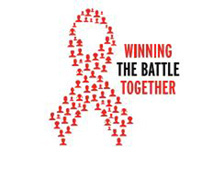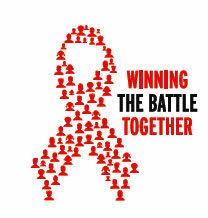Is my wife immune to HIV?
I am HIV-positive, but my wife is negative. We, however, have never used condoms and yet we have been living together for over 10 years

QUESTION
Is my wife immune to HIV?
Dear doctor,
I am HIV-positive, but my wife is negative. I am doing well on ARVs. We, however, have never used condoms and yet we have been living together for over 10 years during which she has had four children who are HIV-negative. Does this mean she could be immune to the disease or could it be that she is actually infected, but it does not show and she could pass on the disease to our child since we would like to have another baby? Robert.
Answer
Dear Robert, the condition you describe here is known as discordance and it fairly common. Unfortunately, if not well handled, it is the reason behind the many new HIV infections that happen, especially among married and cohabiting couples. Your wife is not immune to HIV, but what could have helped her to remain negative is the fact that you are on ARVs, which when taken with good adherence drastically reduce the risk of HIV transmission. Secondly, the risk of transmission among couples that practice consensual sex is lower than in cases of non-consensual sex such as rape. However, now that you know, you need to adopt safer sex, which means you use condoms whenever you have sex. When you want to have a baby you should ensure that your viral load is maximally suppressed then you can have unprotected sex for a period. During such encounters, it is wise for your wife to be put on ARVs, a practice known as pre exposure prophylaxis (PreP). Your doctor will guide you how this can be done once you share with him or her plans of wanting to have another baby with your HIV negative wife.
*************************************************

QUESTION
Dear doctor,
Why should people who are not sick be put on ARVs?
Dear doctor, my mother who is in her 50s is HIV positive and has been on Septrin for close to 10 years because her CD4 count has always been high. However, recently when she went to collect her Septrin, the doctor out of the blue put her on ARVs and told her that it was now a government directive that all people who are HIV positive should be put on ARVs. She is now so disturbed and has refused to start taking the drugs because she feels she does not need them. Why should people who have high CD4 counts and are not sick be put on these strong drugs?
Janat
Answer:
Dear Janat, what the doctor probably meant is that it is now government policy and practice to put all people living with HIV on ARVs in line with WHO guidelines. This is known as "test and treat all", where at least 90% of all people who are HIV positive are put on ARVs. However, no body is forced to take medication if he or she has not been convinced concerning the benefits of such treatment. So, since antiretroviral treatment (ART) is not emergency treatment, but treatment for life; more time needs to be spent counselling your mother and explaining to her the benefits of starting ART early, so that she is convinced and can adhere to the treatment once she starts. She needs to know that treating HIV is similar to repairing a tear in a cloth: the earlier you do it the better the outcome. The other advantage of treating HIV early and suppressing the viral load or amount of HIV in the blood of people infected as soon as possible is that it makes such people less infectious to others. Lastly such person's immune system, which protects him or her from catching diseases, is prevented from being damaged; meaning such a person does not easily develop AIDS. The other thing to remember is that nowadays we have ARVs that are more tolerable, easier to swallow and have fewer side effects and so there is no reason why anyone should keep putting off starting to take them for fear of having nasty side effects.
*************************************************
QUESTION:
Dear doctor,
My sister was recently told she had TB after suffering from a cough for more than three weeks. She was put on TB drugs and improved a bit, but when they checked her sputum after two months, she was told that she still had the TB germs. At the same time, she was tested for HIV and found to be positive. Could it be that TB among people with AIDS does not get cured? We are worried!
Musa.
Answer:
Dear Musa, TB among persons living with HIV, even if they have AIDS, can be cured. However, the infected person must take the TB medicines with good adherence, meaning he or she must take the drugs in the right doses and at the right time as prescribed by the health service provider. What could have happened is that you your sister did not take the drugs with good adherence and so the TB germs could not be destroyed and may have even developed resistance to the medicines or she was infected with TB from someone who had what is known as "multi drug resistant TB" (MDR TB). This is TB that is resistant to rifampicin and isoniazid, two of the four drugs used in treating the disease. Your sister should be evaluated and counselled concerning what should be done next; including finding out if she has MDR TB, which is treated using a different regimen of TB medicines and for a time longer than the usual six months of TB treatment. She should also be put on ARVs as soon as possible and feasible. Lastly, all of you who have been in contact with her should be screened for TB. If these measures are taken, there is no need to be worried.
*************************************************
The question was answered by Dr. Stephen Watiti, an HIV/AIDS counsellor with Mildmay Uganda

Dear doctor, if an HIV positive mother who is on ARVs and her viral load is undetectable breastfeeds her baby, will the baby be infected with the disease?
Liz
Answer
Dear Liz, the main reason why people living with HIV transmit HIV to others including women transmitting the virus to their babies via the mother to child transmission route is because such people have high viral loads and therefore very infectious.
That is why all of us should embrace the "test and treat" programme of putting all people who test HIV positive on ARVs as soon as possible.
So, if the HIV positive mother who is on ARVs and has an undetectable viral load follows the doctors' instructions of putting the child on ARVs soon after birth and exclusively breastfeeding for up to six months; the risk of such a child getting HIV from such a mother is very low.
We have seen this work very well for parents who have done it, such that the number of children infected with HIV via the mother to child transmission route dropped from over 25,000 in 2011 to the current less than 4000 infections annually.
This shows we can eliminate HIV infections among babies if we put in practice the elimination of mother to child transmission of HIV strategies.
The question was answered by Dr. Stephen Watiti, an HIV/AIDS counsellor with Mildmay Uganda
******************************************
I had unprotected sex. What are the first signs of HIV infection?
Dear doctor, I recently had unprotected sex with someone whom I later found out was HIV positive.
I have not yet had the guts to go for an HIV test but wanted to know what the early signs of HIV infection are.
Secondly, how can some tell that he or she has the virus without doing the HIV test?
Jackson
Answer
Dear Jackson, acute HIV infection could present with flu-like symptoms like fever, skin rash, generalised body pains and sometimes swelling of the lymph glands; especially in the neck region.
There are, however, many other viral illnesses, which could present in a similar manner and many people would never recall having such signs and symptoms.
It is therefore important that we do not base a diagnosis on signs and symptoms only but to confirm it by doing an HIV test.
The other thing worthy noting is that during the acute phase of HIV infection, the antibody HIV test when done would be negative.
The only way you can detect the virus during this early stage of infection is by doing a more advanced test known as the DNA-PCR test.
Equally important and of public health significance is that during this period, which could last up to three months; the infected person usually has a very high viral load and is therefore highly infectious.
For such a person condoms are recommended if he or she must have sex. For women, getting pregnant during this period puts your unborn baby at higher risk of acquiring HIV through the mother to child route because of the high viral load or amount of HIV found in the blood.
Lastly, it is safer to assume that any person whose HIV status you do not know is HIV positive and to always take measures to protect yourself.
If exposed like you were, seeking to be put on post-exposure prophylaxis (PEP) by a health service provider trained to offer such a service as soon as possible would have been the best option.